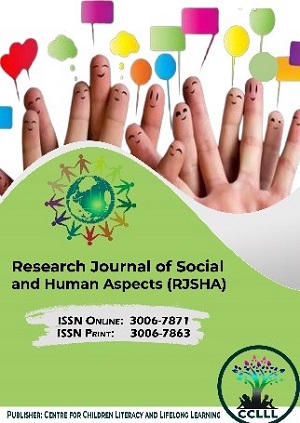Artificial Intelligence and the Future of Human Work: A Socioeconomic Perspective
Keywords:
Political Science, Power, Governance, Political Thought, Culture, Institutions, Globalization, Technology, EnvironmentAbstract
Political science, as a discipline, delves into the intricate dynamics of power, governance, and political thought, shaping the very fabric of human societies. This compendium embarks on a comprehensive journey, traversing the diverse landscapes of political science, illuminating the fundamental concepts and theories that underpin this multifaceted field. The compendium commences by examining the foundational pillars of political science, exploring the concepts of power, authority, and legitimacy, the cornerstones of any political system. It then delves into the diverse forms of governance, from autocracies and democracies to monarchies and republics, analyzing their structures, functions, and challenges. Next, the compendium sheds light on the historical evolution of political thought, tracing the intellectual currents that have shaped political discourse over centuries. From the ancient philosophies of Plato and Aristotle to the modern theories of Machiavelli, Hobbes, and Rousseau, the compendium unveils the profound impact of political thought on the course of human history. Furthermore, the compendium explores the intricate relationship between politics and culture, examining how cultural norms, values, and beliefs influence political systems and decision-making processes. It also investigates the role of political institutions, such as legislatures, executives, and judiciaries, in shaping cultural norms and practices. Finally, the compendium delves into the contemporary challenges faced by political science, including globalization, technological advancements, and environmental concerns. It examines how these factors are transforming the dynamics of power, governance, and political thought, necessitating new approaches and perspectives within the discipline.
Downloads
Downloads
Published
Issue
Section
License

This work is licensed under a Creative Commons Attribution-NonCommercial-NoDerivatives 4.0 International License.







